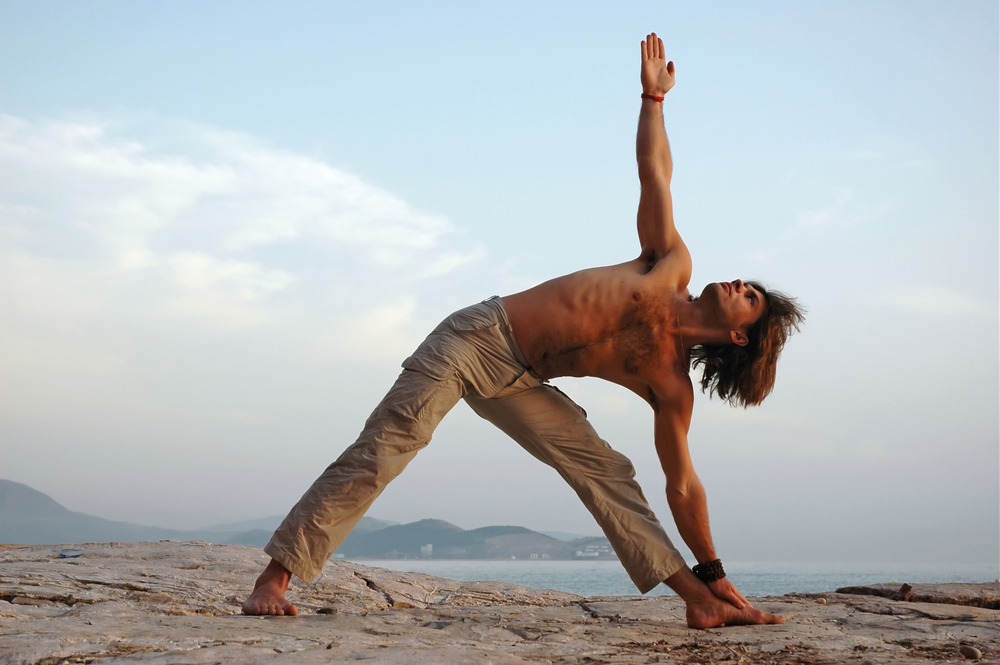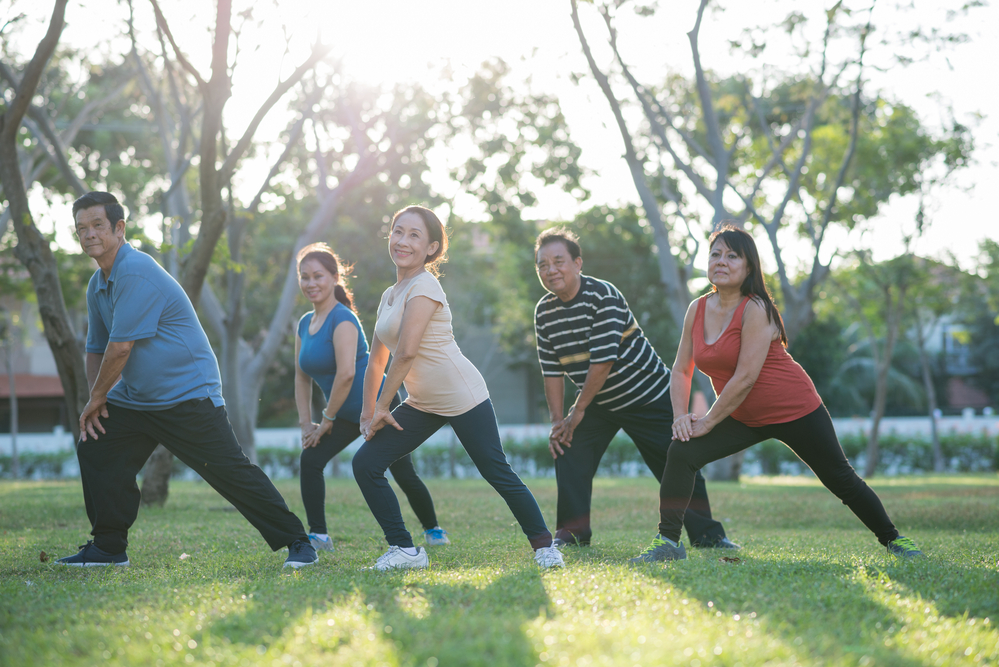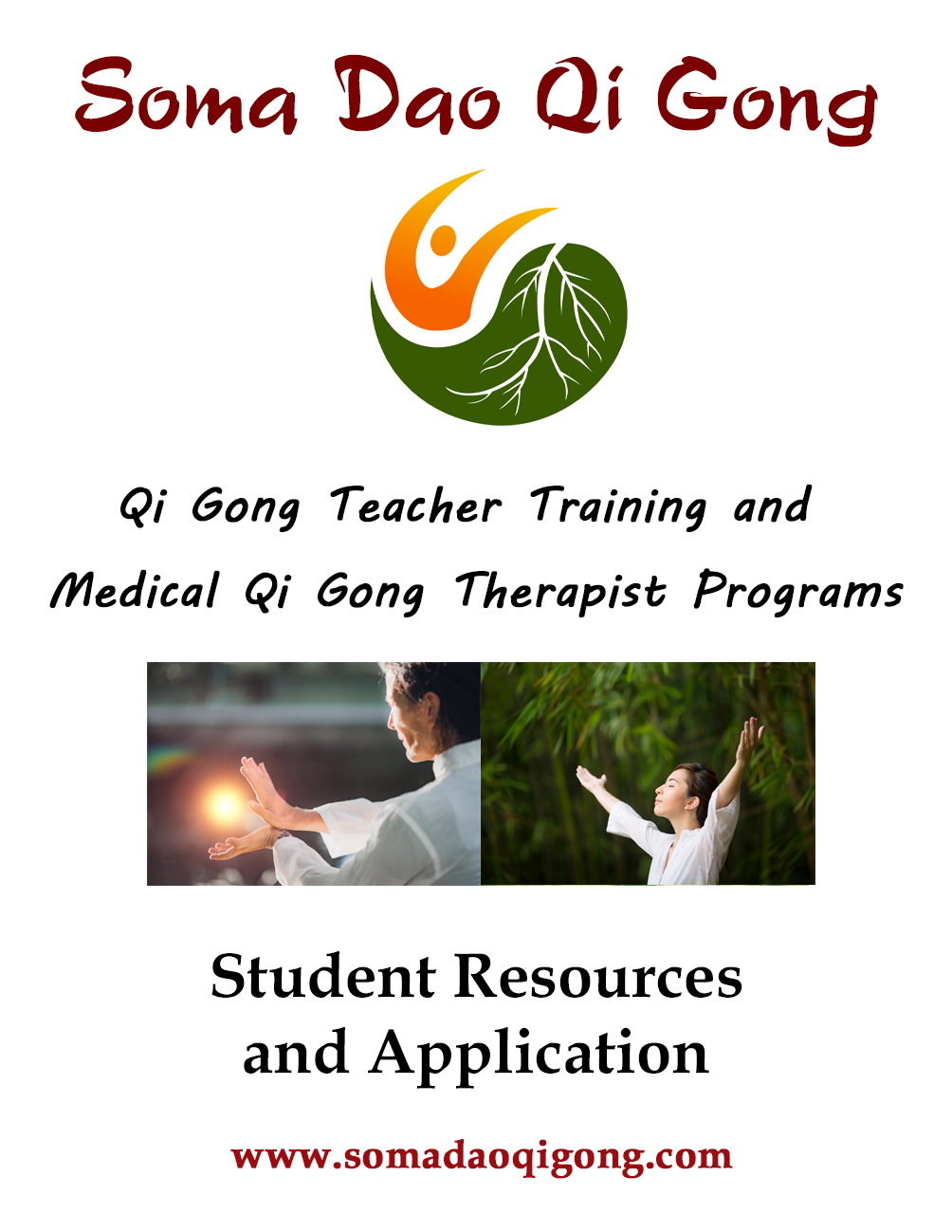


Ancient Wisdom Meets Modern Science
Have you ever wondered why, thousands of years ago, the ancient peoples of China and India developed embodied forms of healing, self-care, and spiritual practice?
Do you practice Qi Gong or Yoga?
Do you meditate regularly?
Do you pray?
“People have needed to meditate for as long as people have felt confused.”
Given the pace and aggression of the modern world, it is no surprise that you can learn and practise Qi Gong and Yoga in almost every city on earth. We all need to relax and reconnect with our bodies, our inner emotional and embodied experience and our sense of self.
“This experience is even more important if you suffer from a chronic illness.”
If you are a practitioner, or a teacher, or if you are new to Qi Gong, I hope you will be inspired to practice regularly by the information in this article.
As a clinician and as a patient, I am always grateful to know how things work on a scientific or physiological level. Understanding some of these deeper processes help me focus my attention on a specific kind of Qi Gong of exercise, or focus on a specific part of my body, or a tangible shift in my state of being. If my Qi gong practiced is focused on a certain aspect of healing, I often choose to alter my diet, supplements, and other lifestyle choices to support those aspects of physiology, like reducing inflammation and supporting tissue repair.
Qi Gong can be practised as a form of clinical treatment and works incredibly well with acupuncture and massage.
These benefits are also common sense.
The more time you spend consciously improving any aspect of your life, the better that part of your life will be. If you choose to consciously improve your relationship with your lover, your family, your mindset, or even money, the better that will go.
Qi Gong is primarily a conscious relationship with your body, your breath, your state of being, your spiritual alignment with life, and your ability to bring awareness and aliveness to specific parts of your body, heart, mind, and soul.
All Qi Gong asks from you is a consistent and evolving personal practice.
As I describe each of the following ten benefits of Qi gong, imagine what it would be like to commit 20 minutes a day, or at least 2-3 times a week, to consciously bringing your attention to each opportunity that is discussed.
Qi Gong Relieves Chronic Pain
I love expressions like ‘up-tight’, ‘wound up’, ‘chocked up’, and many others that describe an embodied feeling that also describes the quality of your life in that moment. My favourite is ‘butterflies in your stomach.’ That feeling actually happens when your adrenaline gets so high, that the blood that normally sits around your life-giving gut, is pushed into your muscles – in case of a life-challenging interaction.
Image the benefit of calming your nervous system enough to completely change your circulation, digestion, hormonal balance, inflammatory status, and presence of mind. In 20 minutes!
Feeling into your embodied state is the first step of every Qi Gong practice.
Shifting your Jing Shen, your State of Being, from ‘wound-up’ to ‘floating on a cloud’, or ‘still like a pond’, is a potent and very tangible quality to your Qi Gong practice.
Sometimes, a little movement, imagination, intention, Breathwork, and letting go can go a long way!
Focusing on this shift of state induces a functional reset in your nervous system called the Relaxation Response. The Relaxation Response shifts your nervous system from a Sympathetic (fight, flight, freeze) response to the Parasympathetic (rest, digest, repair) response. ((https://en.wikipedia.org/wiki/The_Relaxation_Response))

Sympathetic Response
-
-
- Increased Heart Rate
- Dilated Airways
- Blood in Your Muscles, Not Your Gut
- Diarrhea and/or Constipation
- Poor Circulation
- Hypervigelance
- Possible Chills and Sweats
-
Parasympathetic Response
-
-
- Improved Appetite
- Increased Salivation
- Improved Sexual Appetite and Arousal,
- Complete Urination
- Better Digestion
- Regular and Normal Bowel Movements
- More Emotional Availability and Patience
-
This common sense and ‘necessary as sleep’ aspect of State-Shift can change your blood chemistry, blood pressure, your stress hormones, immune cytokines, insulin levels, and inflammatory markers. One hormone, in particular, called Enkephalin, increases with this shift from being reactive to feeling sensually playful. Enkephalin competes directly with Substance-P (a neuropeptide involved in pain perception) in your nervous system, especially your spinal column, reducing the volume and intensity of pain throughout your whole body. ((https://www.britannica.com/science/enkephalin))
More specific Qi Gong practices can not only relieve pain, but also help improve muscle tonus, flexibility, trauma release, general circulation, and energetic self-awareness.
More clinically specific forms of Qi Gong practice and Breathwork can not only relieve pain, but also help improve muscle tone, flexibility, Trauma release, general circulation, and energetic self-awareness.
“We are all aware of the difference between ‘stressing out’ and ‘chilling out.’”
Learning Qi Gong (and many other practices) is the gradual process of learning to reconnect to your Instinctual Body, your Emotional Body, and your sense of Spirit. Each of these ‘bodies’ can get wound up, and each needs certain processes and interactions to unwind.
Each of us gets wound up in stages. Some people clench their jaw first, others feel nausea. Then, maybe it is their shoulders or their lower back – or maybe it is a headache. One of the most potent benefits of a regular Qi Gong practise is a tangible experience of the natural stages of relaxation. Traditional Qi Gong wisdom suggests finding a balance between just relaxing, boosting your sense of vitality, or gradually deconstructing your individual process of getting wound up. As you release the unconscious tensions and energetic patterns, your Qi, sense of Aliveness, and vitality can be used to build your adaptability, openness, and resolve.
Relaxation is an instinct and a skill.
The Relaxation Response is like landing a helicopter in good or bad weather. Besides shifting your Central Nervous System (CNS) from Fight, Flight, Freeze, to Rest, Digest, and Repair, the Relaxation Response gradually unwinds your individual and instinctual pattern of embodying tension, distress, and trauma. At the moment you need it, exactly where and why you need to let your instinctual constraints go.
Once you learn how to stretch, breathe, and move skillfully; Qi Gong takes you into the gradual and somewhat intimate process of feeling into your body, your intuition, and perhaps even your soul. Releasing any embodied distress that you find along the way. Learning to induce this shift of State and to measurably change your metabolism takes some time and some self-trust. If you were to practice Qi Gong, focused on deep relaxation, for 20 minutes a day for 100 days, I believe that you can change your life.
Relaxation is a health and survival need!
As a clinician, I have observed the health outcomes of people who learned the skills necessary for Self-Regulation through the Relaxation Response, and the outcomes of people who continued to ‘fight the good fight’ and stay in a wound-up state. People who can relax deeply and take the time to Heal, unsurprisingly improve much more consistently than those who cannot – and those who have not learned how just yet.
Modern life is at odds with this instinctual need. We are overstimulated, we have unrealistic and externalized goals, and we want the appearance of a good life more than the experience it can offer. Many people feel restless if they have not checked a screen in the last 45 minutes.
“I think the Relaxation Response should be taught in high school.”
The Benefits of the Relaxation Response:
-
-
-
-
-
-
-
- Slowing your heart rate
- Lowering your blood pressure
- Slowing your breathing rate
- Improves digestion
- Stimulates Peristalsis
- Regulating blood sugar levels
- Reducing and regulating stress hormones
- Increasing blood flow to muscles, organs, and extremities
- Reducing muscle tension and chronic pain
- Improving concentration and mood
- Improving sleep quality
- Reducing fatigue
- Diffusing anger and frustration
- Better problem solving
- Reduce Anxiety
- Relieve Depression
- Reduce Addictive Cravings
-
-
-
-
-
-
Recent research from Dalhousie University, Halifax, Nova Scotia, Canada, has shown promising results for Fibromyalgia patients experiencing consistent pain relief from regular Qi Gong practice.((https://europepmc.org/article/pmc/pmc8235984))
Other Articles in the Series
Qi Gong Improves and Accelerates Tissue Repair
Qi Gong Improves Posture and Coordination
Meditative Awareness Improves Focus, Memory, and Sleep
Qi Gong Balances Stress Hormones and Reduces Inflammation
Qi Gong Improves Your Metabolism and Mood
Qi Gong Inspires a Creative Mindset
Qi Gong Guides the Release of Traumatic Memories

I am interested in learning more about becoming a Qi Gong Teacher and/or a Medical Qi Gong Therapist and would like to receive your MONTHLY newsletter.
YES! Send me a copy of the Student Resource Guide
(We respect your privacy)
Beginning April 8, 2024
Learn the skills, practices, and principles necessary to safely and successfully guide others through several kinds of Qi Gong Classes.
